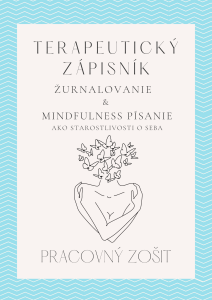Mindfulness pre bezpodmienečný životný štýl: Umenie byť so sebou tu a teraz
V spoločnosti, ktorá nás od detstva učí prispôsobovať sa, analyzovať, opravovať a podávať výkon, sme často stratili schopnosť jednoducho byť. Byť bez hodnotenia. Byť bez potreby zaslúžiť si chvíľu pokoja. Mindfulness – všímavosť – je návrat k tomuto bytostnému stavu. Je to tiché uznanie toho, čo v nás práve teraz žije, bez snahy to potlačiť, opraviť či rýchlo zmeniť.
Pre bezpodmienečný životný štýl je mindfulness základným stavebným kameňom. Lebo kým nevieme vnímať prítomnosť bez filtra minulosti a strachu z budúcnosti, zostávame v zajatí vnútorných podmienok. Podmienky typu: Až keď budem pokojný, budem hodnotný. Až keď odpustím, budem v poriadku. Až keď ma prestane niečo bolieť, budem môcť byť sám sebou.
Ale mindfulness nás učí niečo radikálnejšie:
Aj uprostred bolesti môžeme byť celiství.
Čo je mindfulness v kontexte bezpodmienečnosti?
Mindfulness nie je len technika. Je to postoj – postoj radikálneho prijatia reality. Bez podmienok. Bez výkonu. Bez potreby kontrolovať.
Všímavosť znamená:
-
Vnímať svoje emócie bez toho, aby sme ich museli analyzovať.
-
Zachytiť vnútorné napätie ešte skôr, než sa premení na výbuch alebo útek.
-
Byť prítomný aj v nepohodlí, bez toho, aby sme ho hneď riešili.
-
Započuť svoj dych, keď nám svet diktuje, aby sme zrýchlili.
Ako nás mindfulness vedie k bezpodmienečnosti?
1. Zbavuje nás nutnosti hodnotiť samých seba.
Keď len pozorujem, čo vo mne žije, nepotrebujem byť „dobrý“. Môžem byť pravdivý. V praxi to znamená, že si dovolím cítiť hnev, žiarlivosť, smútok – bez hanby. Bez moralizovania. V tom je bezpodmienečné prijatie.
2. Láme cyklus autopilota.
Keď žijeme nevedome, často opakujeme staré vzorce: mlčanie, ústup, hnev, vyhovieť. Všímavosť vnáša svetlo medzi spúšťač a reakciu. V tom svetle môžeme slobodne konať inak.
3. Lieči nervový systém.
Mindfulness pomáha aktivovať parasympatikus – vetvu autonómneho nervového systému, ktorá zodpovedá za oddych a regeneráciu. V bezpečí prítomnosti sa telo môže naučiť, že už sa nemusí brániť – že teraz je v poriadku len byť.
Cvičenie: Bezpodmienečný moment
Zavri oči. Nadechni sa nosom a nechaj výdych klesnúť až do panvy.
Polož si otázku:
Keby som práve teraz nič nemusel meniť, čo by som v sebe objavil?
Niečo sa ozve – možno napätie, možno pokoj, možno smútok.
Len tam zostaň. Bez úsudku. Bez odporu.
Dýchaj s tým.
To je bezpodmienečnosť v praxi. Prítomnosť bez editovania.
Mindfulness nie je relaxácia. Je to pravda.
Na rozdiel od povrchových foriem „pozitívneho myslenia“ nám všímavosť nehovorí, že máme všetko vnímať pekne. Hovorí: „Vnímaj to, čo je – a prestaň s tým bojovať.“
V tomto priestore pravdy vzniká priestor slobody.
Slobody byť v tele, ktoré si nesie históriu bolesti, ale ktoré si teraz vyberá vedomú prítomnosť.
Každý dych ako akt návratu
Bezpodmienečný životný štýl sa nezačína vtedy, keď sa všetko upokojí. Začína sa práve vtedy, keď sa rozhodneme byť so sebou – bez snahy utiecť. Mindfulness je týmto návratom. Každým dychom, každým momentom, každým „aj toto som ja“.
PRAKTIZOVANIE VŠÍMAVOSTI AKO TERAPUTICKÝ PROSTRIEDOK
Menej stresu, úzkostí, lepšie vzťahy, väčšie sebavedomie, menšie riziko chronických chorôb a zdravšie stravovacie návyky. To je len zlomok pozitívnych zmien, ktoré dokáže priniesť bezpodmienečný životný štýl do každodnného života.
- Vysoký krvný tlak: výsledky štúdie z roku 2009 financovanej NCCIH, do ktorej boli zapojení 298 vysokoškolskí študenti, naznačujú, že praktizovanie transcendentálnej meditácie môže znížiť krvný tlak u ľudí so zvýšeným rizikom vzniku vysokého krvného tlaku. Zistenia tiež naznačujú, že praktikovanie meditácie môže pomôcť pri psychických ťažkostiach, úzkosti, depresii, hneve / nepriateľstve a schopnosti vyrovnať sa.
- Ulceratívna kolitída: V pilotnej štúdii z roku 2014 bolo 55 dospelých s ulceróznou kolitídou v remisii rozdelených do dvoch skupín. Počas 8 týždňov sa jedna skupina naučila a praktizovala redukciu stresu založenú na vedomí (MBSR), zatiaľ čo druhá skupina praktikovala placebo. Vedci dospeli k záveru, že MBSR môže pomôcť ľuďom pri remisii od stredne ťažkej až stredne ťažkej choroby – a možno zníži mieru vzplanutia stresom.
- Úzkosť, depresia a nespavosť: V malej štúdii financovanej NCCIH sa 54 dospelých s chronickou nespavosťou naučilo redukciu stresu založenú na vedomí (MBSR), formu MBSR špeciálne prispôsobenú na liečbu nespavosti (terapia nespavosti založená na vedomí alebo MBTI) alebo sebaposilnenie. monitorovací program. Oba programy založené na meditácii napomáhali spánku, pričom MBTI poskytovalo výrazne väčšie zníženie závažnosti nespavosti v porovnaní s MBSR.
- Odvykanie od fajčenia a závislostí: Štúdia z roku 2011 porovnávajúca školenie so zameraním na vedomie so štandardnou liečbou na odvykanie od fajčenia v správaní zistila, že jednotlivci, ktorí sa zúčastnili školenia zameraného na vedomie, okamžite preukázali vyššiu mieru zníženia používania cigariet. po liečbe a pri 17-týždňovom sledovaní. Výsledky štúdie zobrazovania mozgu z roku 2013 naznačujú, že pozorná pozornosť znížila chuť na fajčenie a tiež znížila aktivitu v oblasti mozgu súvisiacej s túžbou.
TERAPEUTICKÝ ZÁPISNÍK NÁJDETE NA NAŠOM ESHOPE


ČO JE MINDFULNESS – VŠÍMAVOSŤ ?
Mať na pamäti znamená venovať osobitnú pozornosť tomu, čo sa v súčasnosti deje. Zjednodušene povedané, všímavosť je o prítomnosti. Znamená to všimnúť si, čo sa deje vo vašej mysli a vo vašom tele. (Bolí vás žalúdok, keď uvažujete o výbere daní.)A znamená to byť si vedomý toho, čo sa deje okolo vás. (Na vašej trase do práce kvitnú kvety.) Keď si všímate čo sa deje v prítomnosti, kľúčom nie je označiť alebo posúdiť, čo sa deje. Vaše pocity nie sú dobré alebo zlé. Len sú. Týmto spôsobom je všímavosť pozorovanie, namiesto emocionálnej reakcie.

Opakom pozornosti je použitie autopilota. Vtedy robíte veci bez akejkoľvek premýšľania a uvažovania. Ste napríklad na autopilote, keď cúvate z príjazdovej cesty a v sobotu idete do práce, keď ste chceli ísť do parku. Na súčasnosť a byť mindfull sa môžete sústrediť kedykoľvek a kdekoľvek: vo svojom aute, v rade alebo v práci.
Vyskúšajte „zadanie jednej úlohy“. Robíte jednu vec po druhej a venujete jej všetku svoju pozornosť. Môže to byť zameranie na niečo také bežné, ako je umývanie zubov zubami alebo zjesť jablko. Tu je príklad, ako mať na pamäti, keď máte pár minút pre seba a nemusíte sa sústrediť na naliehavejšiu úlohu (napríklad šoférovanie):
Najskôr sa pozastavte a sústreďte sa na svoje telo. Všimnite si, čo vidíte a počujete. Skontrolujte tiež to, čo cítite, chutí a cítite. Neoznačujte tieto vnemy ako dobré alebo zlé. Len ich nechaj ísť. Potom zúžte svoje zameranie. Čo cítite vo svojom tele? Všimnite si jemné pocity ako svrbenie alebo mravčenie. Doprajte každej časti tela chvíľu svojej plnej pozornosti. Začnite hlavou a prechádzajte k prstom na nohách. Ďalej buďte viac zameraní na svoj dych. Kde to vo svojom tele cítite najviac? Položte si otázku: „Ako sa mám v tejto chvíli?“ Uznajte svoje myšlienky a emócie. Strávte s nimi pár okamihov a buďte pri veciach takých, aké sú. Nechajte svoje pocity byť prítomné bez úsudku. Keď sa vaša myseľ zatúla (a bude), jednoducho sa vráťte späť k dychu. Nie je potrebné biť sa kvôli strate pozornosti.
Vytvorte si bezpodmienečný životný štýl, ktorý podporuje šťastie !
Zatiaľ čo moderná medicína považuje zdravotnú starostlivosť za boj proti chorobám, bezpodmienečná terapia je založená na pochopení vnútorného ja, sebapoznaní a seberealizácii ako aj odstránení stresových a toxických faktorov z vášho života. Či už stesi už toho vedomí alebo nie, všetko čo v živote robíte sprevádza vaša vnútorná komunikácia a tá priamo ovplyvňuje vaše fyzické rakcie a zdravie. To ako vnímate seba, váš vnútorný hlas, buď podporuje negatívne podmienečné myšlienky, ktoré ovplyvňujú vaše rozhodnutia, alebo naopak pri bezpodmienečnom vnímaní podporuje sebarozvoj. Schopnosť zmeniť ako sami so sebou hovoríte, váš vnútorný hlas napomáha vymaneniu sa zo začarovaného kruhu podmienečnosti a vydať sa na cestu k bezpodmienečnému životu. A to je možné neutralizáciou podmienečných myšlienok.

Neutralizácia myšlienok je nahradenie podmienečných myšlienok bezpodmienečnými viac motivujúcimi myšlienkami, ktoré budú podnecovať vaše podvedomie k činnosti a v konaní vo váš prospech. Upriamením mysle na pozitívne vnímanie cez schopnosť bezpodmienečného myslenia a autosugestiou. Autosugestia je forma programovania mysle. Pomocou autosugestie budete schopní zmeniť vaše neurokognitívne siete a preprogramovať vaše myslenie. Spoznávanie bezpodmienečných stránok je dôležitým a kľúčovým momentom v procese sebapozania a tvorbe bezpodmienečného životného štýlu.

Pred spaním sa dostávate do hladiny delta, a je dokázané že počas delty tesne pred tým ako zapíte, je mysel otvorená najviac k podvedomiu, a práve preto myslením na pozitívnu bezpodmienečnú budúcnosť je najlepšie programovať vtedy. Počas delty je najviac otvorené podvedomie ako aj vaša shcopnosť ho preprogramovať. Každý večer, predtým ako pôjdete spať sa započúvajte do zvukom prírody naplánujte si svoj nasledujúci deň. Myslíte na to čo by ste chceli v nasledujúci deň dosiahnúť a aké máte ciele, vašu víziu. Robte malé zmeny, ich efekt sa časom znásobí a požiadajte svoje podvedomie o odpovede.
Prírodná meditácia všímavosti. Meditujte pri krásach prírody minimálne pätnásť minút denne.
Ráno alebo večer pred spaním ukludnite svoju myseľ, vžite sa to prítomného okamihu a vnímajte zvuky prírody.
Precvičovaním upriamením vedomia na prítomný okamih, vás naučí ovládať vaše emócie,
zvládať lepšie stres a emocionálne sa regulovať.
